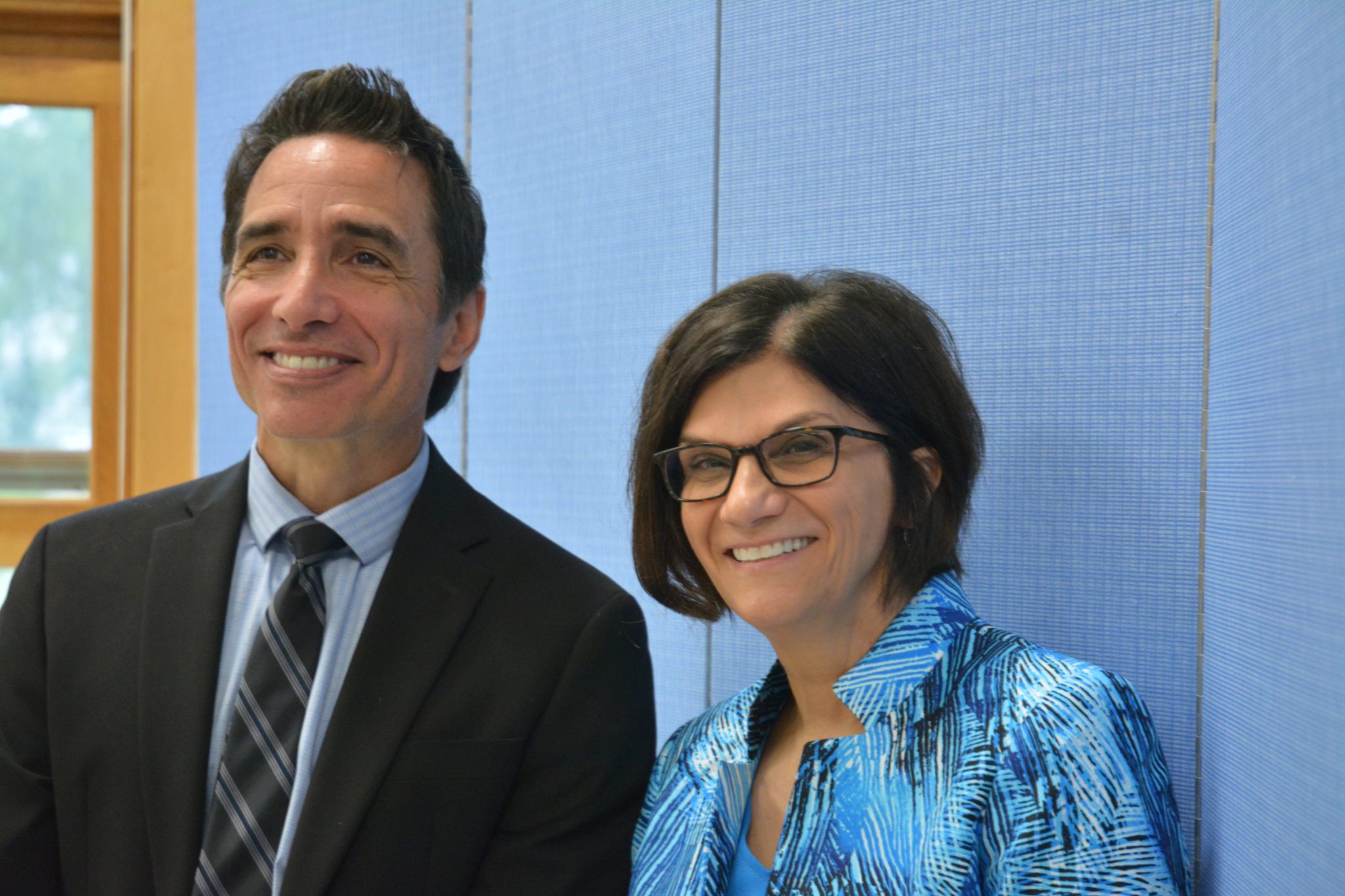Becoming an educator – much less serving as a superintendent of schools – was the last thing on Steve Cochrane’s mind as he sat on the lawn in front of Nassau Hall with his classmates in Princeton University’s Class of 1981 on graduation day.
Cochrane had his heart set on following his father, who was an Episcopal bishop, into the ministry. After graduation, he was going to work for a year before heading to the seminary.
“I had a job lined up as a management intern with Prudential Insurance, but I began to have cold feet about the monotony of commuting to New York every day in my three-piece suit with a thousand other people in their three-piece suits,” Cochrane said.
At the last minute, he interviewed for a position as an admissions officer at Princeton University and was hired. He spent the next few years visiting high schools across the country, talking about the value of a liberal arts education.
“I loved it,” Cochrane said.
The first step in a career in education – which ended June 30, when Cochrane retired as the Princeton Public Schools Superintendent of Schools – had been taken.
Cochrane’s career path into the public schools as a teacher and administrator took a few twists and turns. He enrolled at Harvard University and earned a master’s degree in higher educational administration.
While he was studying at Harvard, he was a dorm director at Wheelock College in Boston. The small college focuses on preparing teachers of young children. He stayed on and became the associate dean of admissions.
As the associate dean of admissions at Wheelock College, he reprised his role as a representative of the college. Only this time, instead of talking about the power and importance of a liberal arts education, he spoke about the power and importance of working with young children.
As Princeton alumni occasionally do, Cochrane returned to Princeton University. He became the assistant dean of students, but Wheelock College’s mission stayed with him.
“I loved the interaction with the students at Princeton, but I kept wondering if I could make a greater difference with students by working with them at the beginning of the educational process instead of at the end, and in a public school setting rather than at one of the most elite colleges in the world,” he said.
In what he admitted was probably the most naive, idealistic and most important decision of his life, Cochrane said, he left a deanship at Princeton University to teach a multi-age class of fourth- and fifth-graders at an elementary school in the South Brunswick Public Schools.
“I have never looked back,” Cochrane said.
Cochrane’s career moves took him to the Hopewell Valley Regional School District, where he was the principal of the Hopewell Elementary School and then the Timberlane Middle School. He moved to the Colts Neck Township Schools to become its director of curriculum and instruction.
Cochrane accepted the position of superintendent of schools in the Princeton Public Schools in January 2014.
Looking back at his career accomplishments – some large, some small – Cochrane said he was honored, as the principal at the Hopewell Elementary School, to join with the staff and families to transform the school into a joyful learning community focused on school-wide enrichment.
The transformation at Hopewell Elementary was one that “we accomplished together, which is how all real change happens in education,” he said.
“Here in Princeton, I am proud of how we came together as a community when I first arrived to establish a district mission focused on preparing all students to lead lives of joy and purpose.
“We have shifted the direction of the district away from achievement as defined by SAT scores and college admissions.
“We have charted a course towards wellness, racial literacy and equity, ensuring that every child achieves their highest potential,” he said.
The district changed the starting time at Princeton High School to later in the morning, created longer periods for deeper learning, and focused on authentic problem-based learning, Cochrane said.
There is a system in place to review and revise the curricula to ensure it meets the highest standards of learning and engagement, and that it reflects the richness and diversity of the world, he said.
Cochrane said he is proud of the teachers and staff and how they handled the “lightning quick” shift to remote learning in the wake of COVID-19 this year. There has been a shift in the pace and priorities of the learning experience. The staff has provided emotional support and even food, as needed, during the pandemic, he said.
Cochrane also takes pride in having overseen an approach to anti-racism that begins with relationships. Of the 15 teachers who have been hired for the 2020-21 school year, 10 are Hispanic, Black or Asian.
There is more work to do to crate a “truly inclusive and culturally responsive community, but I believe we are headed in the right direction,” Cochrane said.
Responding to the virus of racism, school districts across the country -including the Princeton Public Schools – are considering their complicity as well as the actions that must be taken to educate students to be anti-racist, he said.
“We have instituted a racial literacy elective at Princeton High School, but our vision has always been of a racial literacy requirement,” he said.
It would begin with the youngest learners and extend through their school experience, culminating with them graduating with the knowledge, skills and values to navigate a racially complex world, Cochrane said. They would be able to address injustice whenever they see it.
“If there is ‘unfinished business’ for me, that may be it. But I feel our school board, our staff and our community partners are prepared to make it happen,” he said.
“I am leaving the Princeton Public Schools in great hands, and I am grateful for the opportunity to have served it for the past six years,” Cochrane said.

